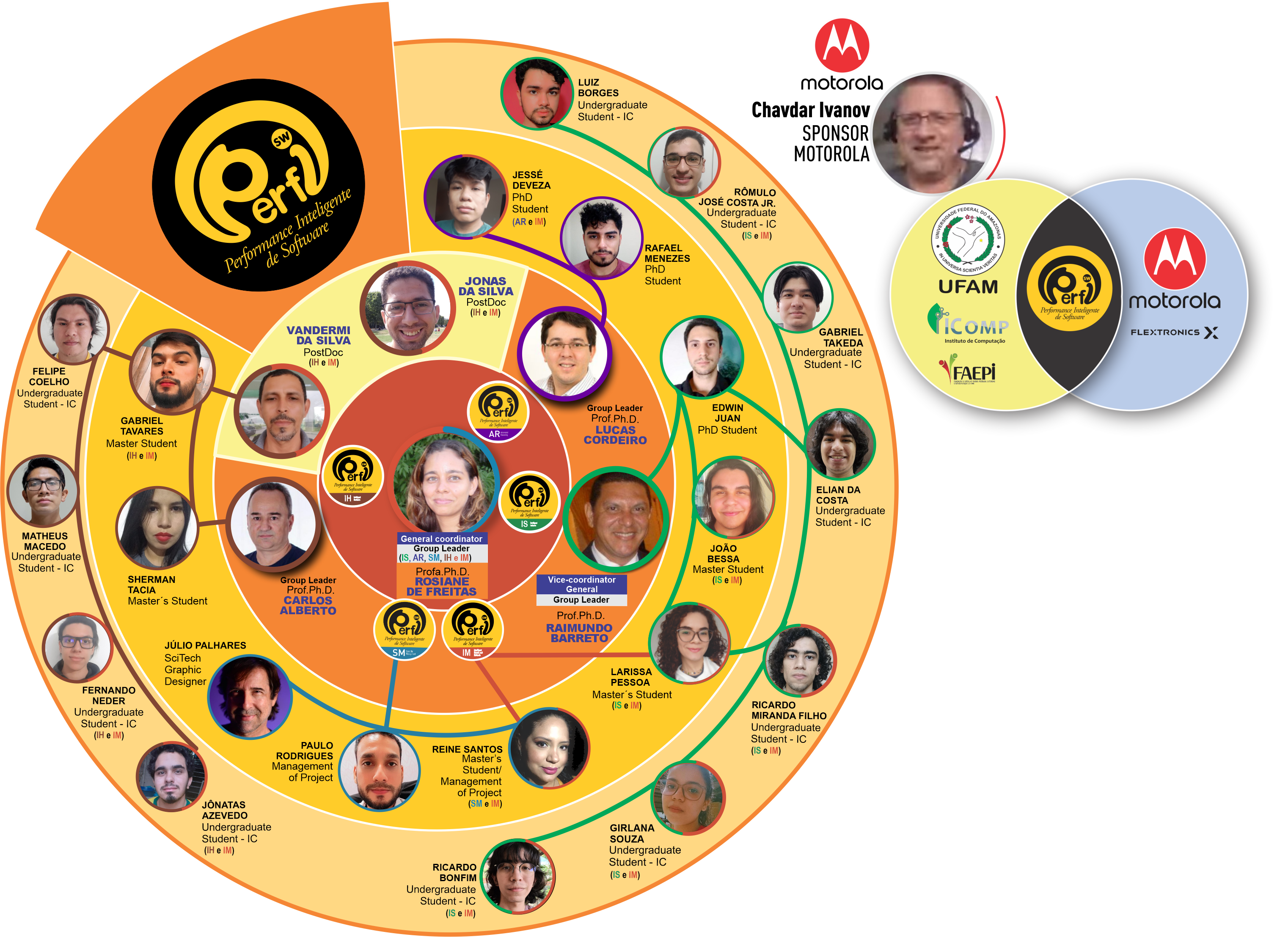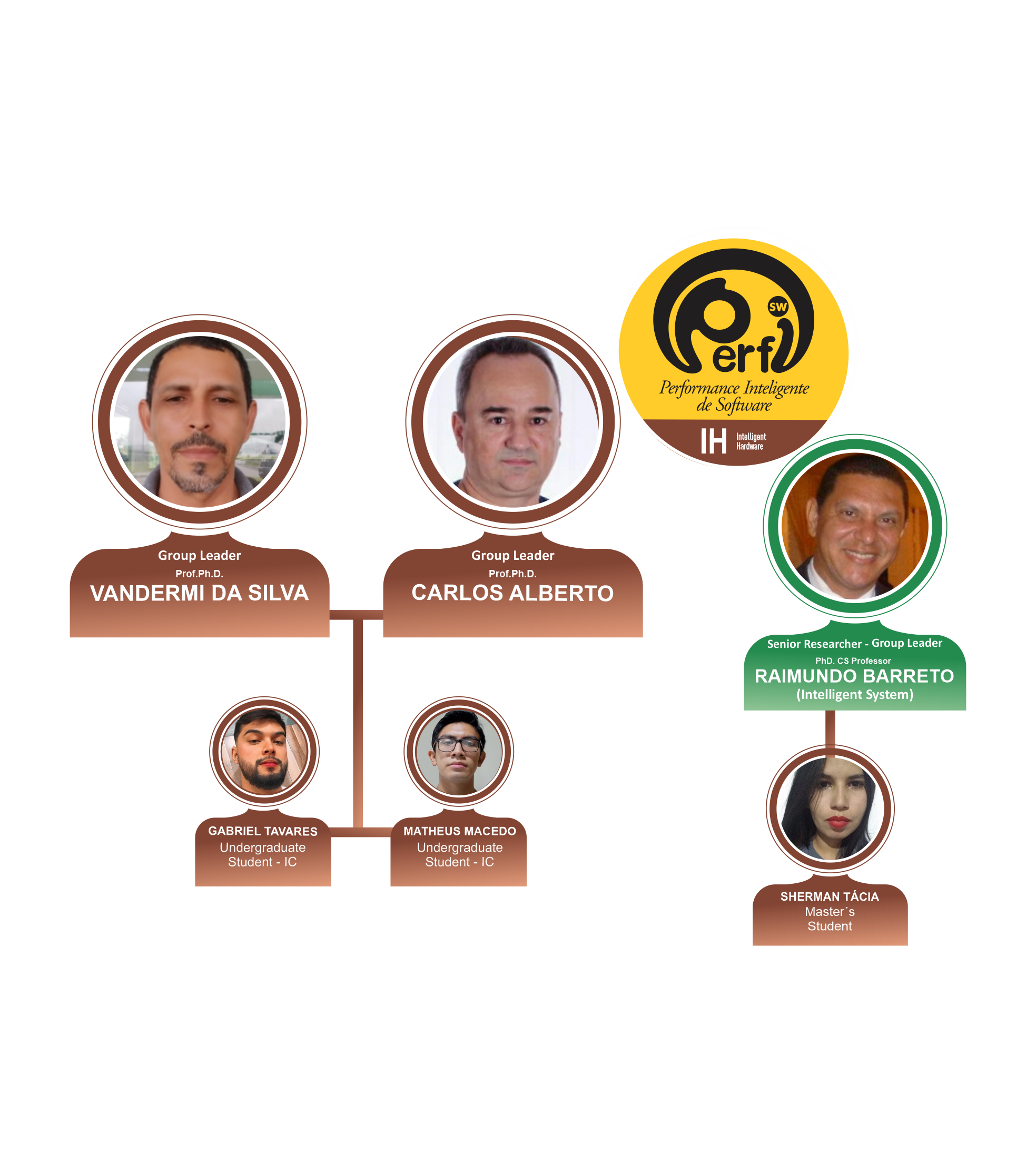Artificial Intelligence Techniques for Software Performance Analysis and Optimization
RESEARCH, DEVELOPMENT AND TECHNOLOGICAL INNOVATION PROJECT (RD&I)

The Project characterized as Research, Development and Technological Innovation (RD&I), entitled Artificial Intelligence Techniques for Software Performance Analysis and Optimization (SWPERFI), will apply advanced techniques of data mining and artificial intelligence (deep learning techniques and computing in general) to analyze performance metrics. In particular, innovative methods will be developed to verify dependencies, establish correlations, determine causes of possible problems and establish a new approach embedded in a prototype tool for verification/testing and optimization of software performance by applying artificial intelligence (AI) techniques.
Below are some metrics to consider:
The SWPERFI Project has a challenging and innovative character, which involves the application of sophisticated computational techniques from the vast framework of computational intelligence concepts and techniques (classical artificial intelligence and combinatorial optimization techniques and mathematical programming), to analyze the use of application resources. , automatic adjustment of parameters and the consequent improvement in the performance of embedded systems in mobile devices. Therefore, the objective of this project is to provide an innovative method of analyzing, testing and optimizing the performance of embedded software in order to provide a prototype tool for Motorola mobile devices.


Thematic group that aims to investigate systems and develop methods, algorithms and tools to detect and prevent software integrity failures in Android applications using static and dynamic code analysis and theorem proving techniques, involving Constraint Satisfaction Problems (SCP) and Constraint Programming (CP), together with the transversal thematic group of Intelligent Models&Methods (IM).

Thematic group that aims to apply complex data mining techniques (correlations and association rules) and, together with the transversal thematic group of Intelligent Models&Methods (IM), the adoption of computational intelligence techniques (classical machine learning, deep learning, deep neural networks, meta-heuristics/bio-inspired methods and hybrid strategies), to establish correlations between metrics and identify the root cause of software performance failures, research, aiming at the performance optimization of the embedded systems of interest.

Thematic group that aims to investigate hardware devices of embedded systems, in order to verify to what extent they impact the performance of the operating system and the execution of applications. On the other hand, this project proposes the adoption of aspects directly related to hardware, as a metric for software performance. Thus, it is intended to identify the hardware usage pattern through experiments and data collection from system logs, analysis of communication processes. Then, incorporate intelligence in these processes directly related to hardware devices, through the application of machine learning techniques and computational intelligence in general, to improve hardware performance, together with the transversal group of Intelligent Models&Methods (IM).

The Scientific and Technological Management group (SciTech Management - SM) aims to investigate issues related to the research and development project, with a great factor of technological innovation, taking the project in question as a case study for decision making, application of management methodologies, techniques and tools, software version control, communication and collaborative development process.

Transversal thematic group whose members are also participating in the other structured thematic groups. The aim is to investigate and apply theoretical models and advanced computational strategies involving combinatorial optimization, mathematical programming and computational intelligence, such as Constraint Programming (CP), decision diagrams and graph theory, (meta) heuristics and computational intelligence strategies. in general (such as classical machine learning, deep learning, artificial neural networks, bio-inspired methods and hybrid strategies). Thus, the interaction is direct with the others AR, IS and IH groups.
